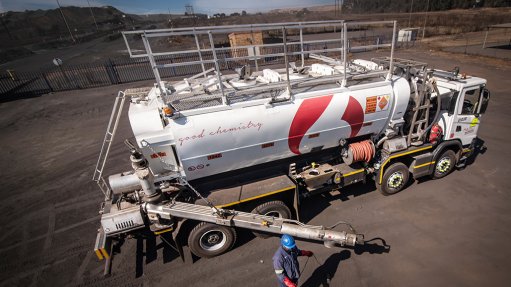Reflections on technological change
I believe that all technologies go through a cycle. Henry Ford once said: “If I’d asked people what they wanted, they would have said faster horses.”
But even as we read quotes from famous motor vehicle manufacturers, it is obvious that the motor vehicle, as in ‘car’, is on its way to obsolescence. Travel technology is changing. Travelling from Johannesburg to Cape Town and vice versa when I was young was a two-day trip. But, as the road improved and cars improved, road traffic increased and I guess you can travel from Johannesburg to Cape Town in about 16 hours.
However, in Europe and Britain, there are many people who do not drive at all; the railway system is so well developed that there is no need. In London, there is a congestion charge that you have to pay if you enter the city. For this reason, it is far more common to take the tube or, again, a taxi. If I regard Africa, then it is crying out for an interlinked rail system operating at high speed. The present transport system is an anachronism – it works but it should not. A technological change is needed.
I wonder if we are entering a new cycle of electrical technology. Until recently, domestic electrical loads consisted entirely of incandescent light, geysers, stoves, kettles, fridges and heaters. The incandescent light has gone the way of all flesh and has now been replaced by a CFS light and, more commonly lately, a light-emitting diode (LED) light. The LED lights are quite nice and, unlike a CFS lamp, cast a reasonable colour of light.
Geysers have now become so well insulated that they retain the heat for a long time and undercounter geysers that switch on only when there is a demand for hot water save a great deal more energy than the traditional geyser.
And so it goes on. Instead of a stove, you can cook with an induction cooker, use the microwave to heat water and use efficient heaters. I do not think that anybody thought, ten years ago, that LED lights would become so much cheaper and so much brighter than they were. I certainly did know about an induction cooker ten years ago but now they are as common as two-ring stoves and much more efficient.
The question is: Where will we go from here? The fridge certainly needs some better ideas. Current fridges work on gas being compressed by a compressor, which then removes the warmth from the air in the fridge. However, there is a device called a thermo bridge, which uses electricity to provide cooling. This uses the ‘Peltier effect’, an effect whereby heat is given out or absorbed when an electric current passes across a junction between two materials. You will find that a portable fridge used for camping that plugs into the cigarette lighter socket of the car uses a thermo bridge. It will be possible to extend this effect to the point where, theoretically, you could have a refrigerator that operates using the energy from a solar photovoltaic (PV) panel. The fridge would have to be made with some form of cold storage because, obviously, it would not work during the evening.
One of the big problems facing renewable-energy developments is the fact that renewable energy is intermittent. There is an obvious way to store energy – the electricity from the renewable-energy plant is used to turn water into hydrogen and oxygen by electrolysis. The hydrogen and oxygen then recombine in a fuel cell to form water and the fuel cell produces electricity. There is no need to demonstrate the technology; it already exists. I have a little fuel cell car and if you put it out in the sun with a little solar cell, then you can make it go around in a circle while the hydrogen/oxygen recombine. The problem with fuel cells is that they are very expensive. However, this is just a detail: in 1977, PV cells cost $77/W. Today, they cost $0.30/W.
I think things will be different. I am sure electrical technology will change.
Article Enquiry
Email Article
Save Article
Feedback
To advertise email advertising@creamermedia.co.za or click here
Press Office
Announcements
What's On
Subscribe to improve your user experience...
Option 1 (equivalent of R125 a month):
Receive a weekly copy of Creamer Media's Engineering News & Mining Weekly magazine
(print copy for those in South Africa and e-magazine for those outside of South Africa)
Receive daily email newsletters
Access to full search results
Access archive of magazine back copies
Access to Projects in Progress
Access to ONE Research Report of your choice in PDF format
Option 2 (equivalent of R375 a month):
All benefits from Option 1
PLUS
Access to Creamer Media's Research Channel Africa for ALL Research Reports, in PDF format, on various industrial and mining sectors
including Electricity; Water; Energy Transition; Hydrogen; Roads, Rail and Ports; Coal; Gold; Platinum; Battery Metals; etc.
Already a subscriber?
Forgotten your password?
Receive weekly copy of Creamer Media's Engineering News & Mining Weekly magazine (print copy for those in South Africa and e-magazine for those outside of South Africa)
➕
Recieve daily email newsletters
➕
Access to full search results
➕
Access archive of magazine back copies
➕
Access to Projects in Progress
➕
Access to ONE Research Report of your choice in PDF format
RESEARCH CHANNEL AFRICA
R4500 (equivalent of R375 a month)
SUBSCRIBEAll benefits from Option 1
➕
Access to Creamer Media's Research Channel Africa for ALL Research Reports on various industrial and mining sectors, in PDF format, including on:
Electricity
➕
Water
➕
Energy Transition
➕
Hydrogen
➕
Roads, Rail and Ports
➕
Coal
➕
Gold
➕
Platinum
➕
Battery Metals
➕
etc.
Receive all benefits from Option 1 or Option 2 delivered to numerous people at your company
➕
Multiple User names and Passwords for simultaneous log-ins
➕
Intranet integration access to all in your organisation


















